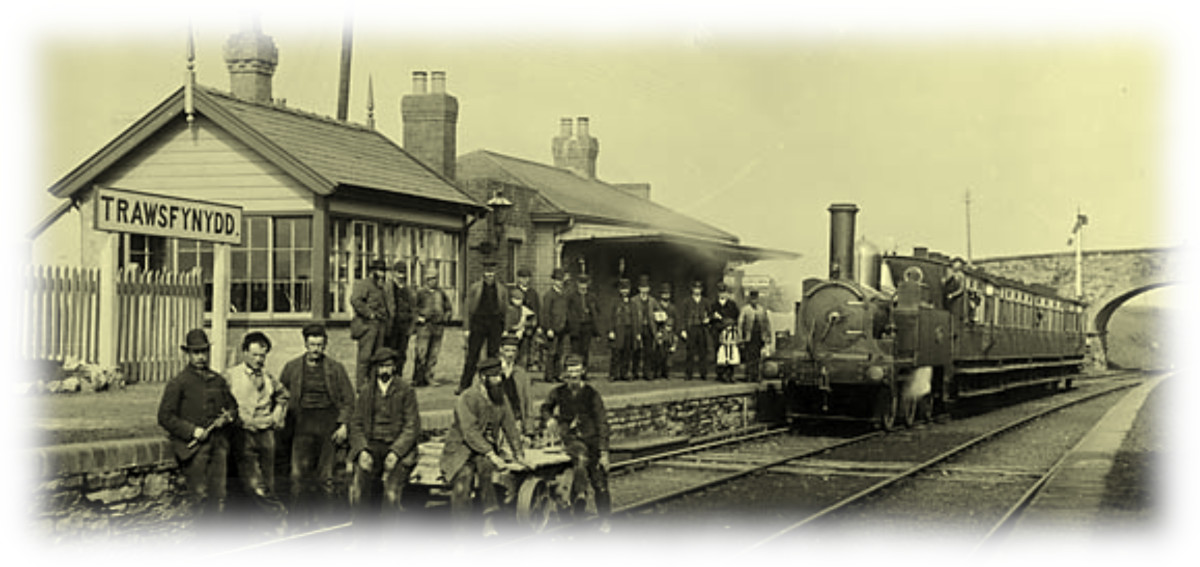| Re: OTD - 2nd January (1960) - Bala (northward) closes Posted by Richard Fairhurst at 15:17, 3rd January 2022 |     |
I think the current aspiration for Trawsfynydd is for a "small modular reactor". Don't know whether they'd typically be rail-served.
Here's the heritage project's website:
https://www.balaffest.org.uk/main.php?page=index
and their "State of the Railway" report:
https://www.balaffest.org.uk/newsletters/sor2021.pdf
| Re: OTD - 2nd January (1960) - Bala (northward) closes Posted by ellendune at 19:26, 2nd January 2022 |     |
But the section from Trawsfynydd–Blaenau Ffestiniog is technically still open isn't it? And if Trawsfynydd is used again as a Nuclear Power Station it will probably be required again.
| Re: OTD - 2nd January (1960) - Bala (northward) closes Posted by Richard Fairhurst at 19:14, 2nd January 2022 |     |
If I had to nominate one disused trackbed to become a cycleway it'd probably be Llyn Celyn–Trawsfynydd–Blaenau Ffestiniog. Superb scenery and almost entirely unobstructed – indeed, north of Trawsfynydd the tracks are of course still in place (and subject to a rather unlikely heritage proposal).
In September I stayed in the Plas yn Dre hotel in Bala. In the stairwell was a framed original plan of the diversion planned to take the railway out of the way of Llyn Celyn. As Wikipedia says, it was of course never constructed:
The line was subsequently flooded by the lake, and the base of the dam also crosses it. Liverpool Council had in fact planned a railway diversion, but this was never built as the British Transport Commission had decided to close the line.
| Re: OTD - 2nd January (1960) - Bala (northward) closes Posted by grahame at 11:49, 2nd January 2022 |     |
From http://forgottenrelics.co.uk/tunnels/cwmprysor.html
Whilst the London & North Western arrived from the north in 1881, the Great Western Railway made tracks up from Bala, reaching Blaenau two years later. It never recouped its investment. The 25-mile route took ten years to construct, swallowing money as it went.
Having climbed to a summit of almost 1,300 feet, the line was etched onto a precipitous perch high above the River Prysor as it snaked through the valley. This narrow ledge with occasional rocky cuttings carried the single line for two miles, westwards from a spectacular nine-arch viaduct towards the village of Trawsfynydd.
For a handful of scattered communities, the railway’s arrival opened the door on a new and distant world. “There was nothing else” recalls former guard James Roberts. “There were no motor cars. There were no buses. So the line was the artery between Bala, Trawsfynydd and Blaenau Ffestiniog. Therefore it meant more than we can envisage today. It meant everything.”
Having climbed to a summit of almost 1,300 feet, the line was etched onto a precipitous perch high above the River Prysor as it snaked through the valley. This narrow ledge with occasional rocky cuttings carried the single line for two miles, westwards from a spectacular nine-arch viaduct towards the village of Trawsfynydd.
For a handful of scattered communities, the railway’s arrival opened the door on a new and distant world. “There was nothing else” recalls former guard James Roberts. “There were no motor cars. There were no buses. So the line was the artery between Bala, Trawsfynydd and Blaenau Ffestiniog. Therefore it meant more than we can envisage today. It meant everything.”
and from
https://en.wikipedia.org/wiki/Trawsfynydd_railway_station#/media/File:Trawsfynydd_railway_station.jpg

| OTD - 2nd January (1960) - Bala (northward) closes Posted by grahame at 09:34, 2nd January 2022 |     |
1960 Line from Bala northwards to Blaenau Ffestiniog closed to passenger services. https://en.wikipedia.org/wiki/Bala_(New)_railway_station
North Wales was a battleground between the London and North Western Railway with their main line along the coast, and friends of the Great Western Railway - the Cambrian - with their line via Llangollen and Dolgellau. Between then, towns such as Denbigh, Caernarvon and Blaenau Ffestiniog could be reached by branches from both the north and the south.
Blaenau Ffestiniog remains, alone of the three I mentioned, on the main railway network (though TfW are bustituting it at present due to a train crew shortage), but it lost its service from the south in 1960. Seeing reports of passenger numbers, it was a pretty dire case of a mass transit (if you could call it that) corridor without the masses. Can't help wondering if - these days - it would attract the tourists, or be part of a political solution connecting south to north Wales while staying within the principality.
The line is also notable that part of the trackbed is now flooded by waters from a reservoir.










